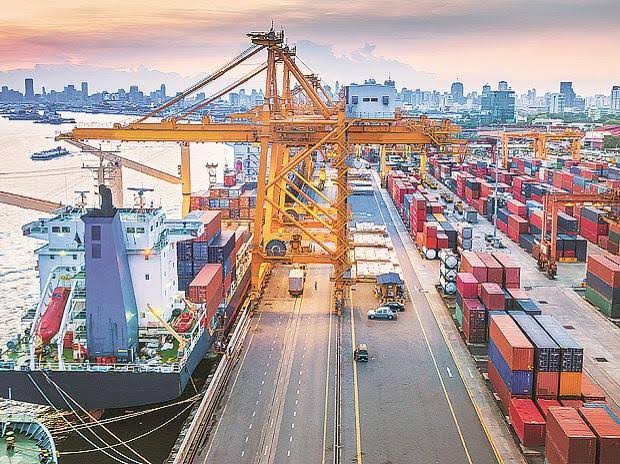Business
Nigeria’s Import Bill Increases To $8.92bn In Nine Months

The import bill of Nigeria from January to September 2021 has risen from $4.29bn to $8.92bn in the same period of 2020.
An economist, Dr Biodun Adedipe, revealed this while presenting the report titled ‘National economic outlook: Implications for businesses’.
The report was presented during an event organised by the Chartered Institute of Bankers of Nigeria in Lagos on Tuesday.
Adedipe while reacting to Nigeria’s external sector and dwindling capacity to extinguish foreign obligations, said, “Monthly import bill of N3.66bn (or $8.92bn) in Q1-Q3 2021 more than doubled $4.29bn in 2020.”
He further stated that security challenges in the country has hindered Nigeria from being an highly attractive investment destination.
Adedipe noted that BAA projected 3.23 per cent economic growth for 2022; the Federal Government and the National Bureau of Statistics projected 4.2 per cent; the International Monetary Fund projected 2.7 per cent; while the World Bank projected 2.5 per cent.
He said, “Inflation rate is expected to moderate, but still double-digit (removal of oil and electricity subsidies); lending rate will remain double-digit. Continuing pressure (relentless imports and shrinking capacity to pay foreign bills) will likely force the CBN to further devalue the naira.”
He added that there would be “improvement in infrastructure that will impact positively the cost of doing business and improve government revenue in the near term; and intensified digitalisation and ascendancy of the digital economy”.
The President, CIBN, Dr Bayo Olugbemi, said the economic outlook event, initiated in 2014, was designed to bring together captains of the industry, subject matter experts, seasoned practitioners and relevant stakeholders to discuss emerging and pertinent issues facing both the national and global economies as well as their implications for businesses.
“As we usher into the pre-election year, this event is very vital as it enables us to gain insight into the impact of the year on several economic indices as well as to help us undertake a comprehensive assessment of the opportunities, challenges and indeed the threats that businesses may encounter during the current year,” he said.


